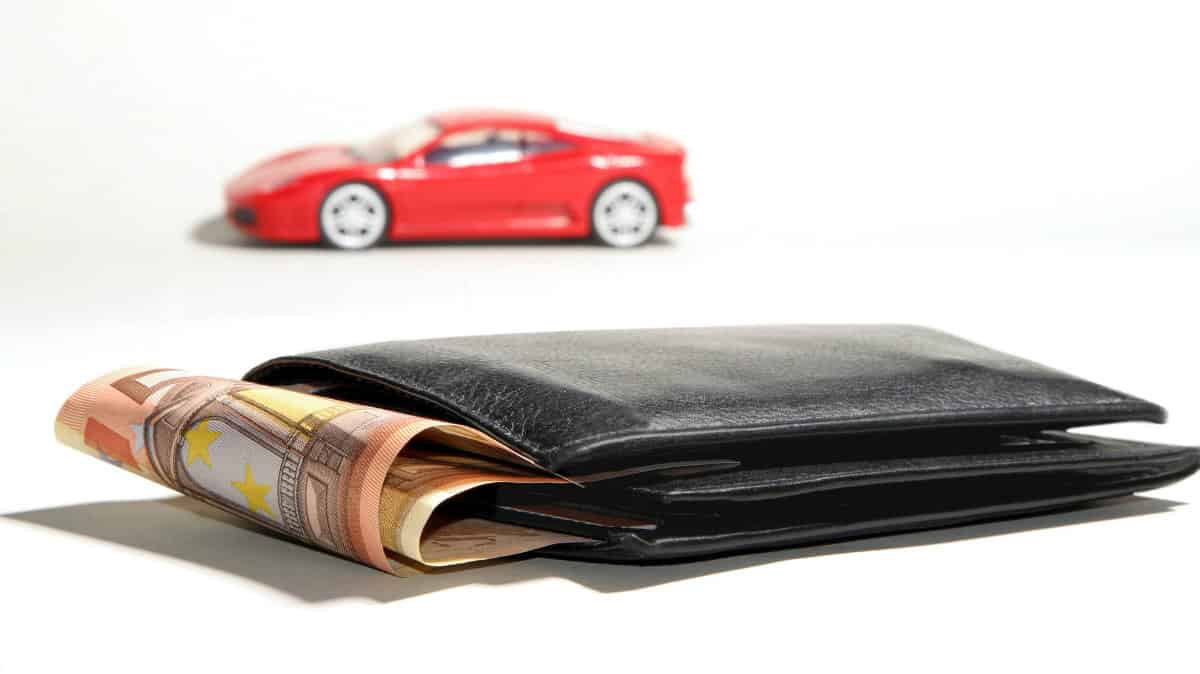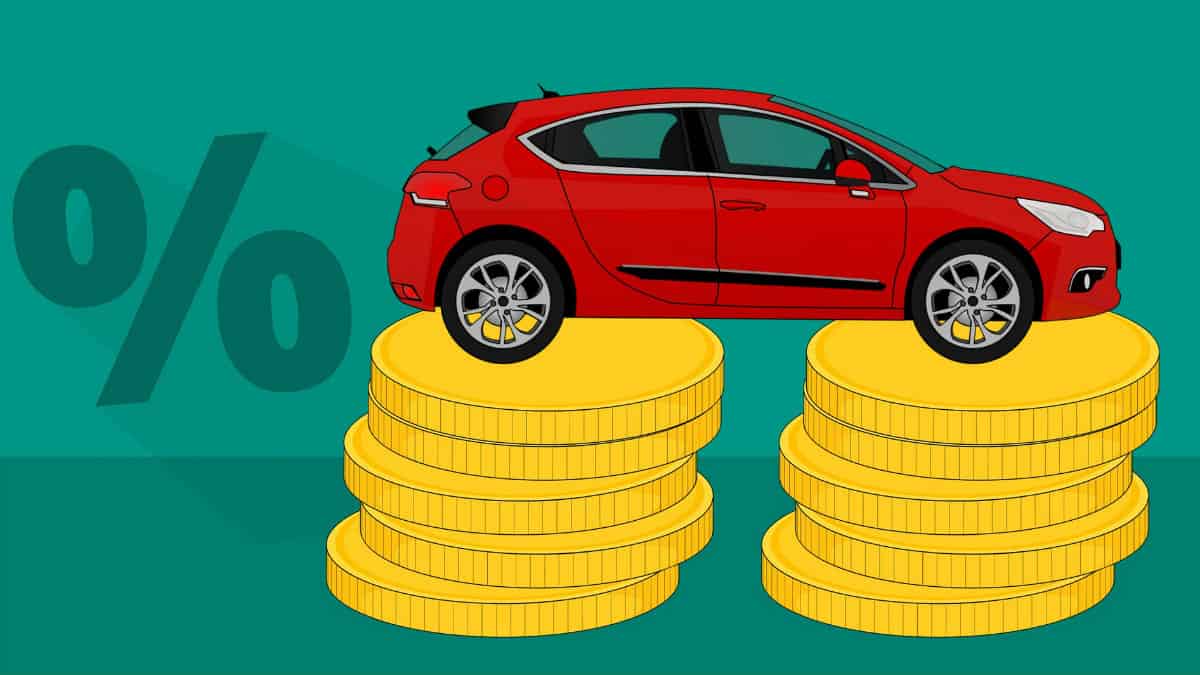\boxed{“`html
How to Get the Best Car Finance Deal
Last year in the UK, 2.5 million people bought a new car, with around 80% of them using some form of car finance. This impressive figure highlights the popularity of car finance. However, before you sign on the dotted line, it’s important to understand the various types of car finance available so you know exactly what you’re getting into.
There are three main types of car finance: Personal Contract Purchase (PCP), Hire Purchase (HP), and Personal Contract Hire (PCH). Additionally, it’s worth considering GAP insurance, which helps ease the financial pain should your car be written off.

You can finance a car such as a Ford Fiesta for as little as £80 a month. Even a smart, new city car can be less than £100 a month with a small deposit.
Personal Contract Purchase (PCP)
Personal Contract Purchase (PCP) is the most popular way to “own” a new car. However, you never actually own the car until you’ve paid the final settlement figure, known as the Guaranteed Minimum Future Value (GMFV). The GMFV is what the car finance company estimates the car will be worth at the end of the finance period.
You only need to finance your portion of the car‘s full price until the GMFV is paid, as the car belongs to the car finance company until that point. However, you are the registered keeper while making your portion of the payments.
Depending on the terms of the PCP, you may need to put down a deposit and make fixed monthly repayments, which may or may not include interest. If interest is included, it is charged on the entire invoice amount minus your deposit.
At the end of your contract, after a fixed number of payments, you have three choices: return the car to the retailer and walk away, make a balloon payment (the GMFV) to own the car outright, or use the difference between the GMFV and the actual value of the vehicle at the end of the contract to pay the deposit on a new car.

The last option is the most popular, but it’s important to remember that the gap between the GMFV and the current value of the vehicle isn’t equity. Any difference is due to you paying a little more over the duration of the contract than the car is worth, so trading into a new model allows you to capitalize on the difference—you can’t claim it back if you decide to leave the deal.
One of the reasons PCP deals are popular is that they allow you to tailor the package to your needs: the bigger the deposit you put down and the longer the term of the agreement, the lower the monthly payments will be.
The disadvantage of PCP deals is that the monthly payments tend to be quite low because the balloon payment at the end tends to be quite high. As with most car finance packages, you don’t own the car if you buy it using PCP until you’ve paid it off. PCP deals also come with mileage limits; exceeding these could result in a big bill at the end of the term.
Hire Purchase (HP)
Hire Purchase (HP) is similar to PCP in that you choose the car you want, put down a deposit, and agree to make monthly payments over a fixed term. However, monthly payments tend to be higher than with PCP deals because you’re paying for the car itself rather than just its depreciation.
Once you’ve made your final payment at the end of the HP agreement, you’ll own the car outright with no balloon payment. Although the finance company will own the car until you’ve made that final payment, some people prefer HP to PCP because, while the monthly payments are higher, there’s no balloon payment at the end. Customers also like the idea of making payments towards ownership of a car rather than entering what often becomes a rolling contract with PCP deals.
Like PCP deals, HP agreements are arranged by the car dealer. The car can also be taken away from you if you fall behind with your payments. HP agreements usually require a 10% deposit, and monthly payments and interest rates are fixed when you take out the policy.
Personal Contract Hire (PCH)
Personal Contract Hire (PCH) agreements are long-term rentals where you never own the car outright. At the end of the term, you simply hand the car back with no option to buy it outright.
PCH can offer a cheap route into driving a brand-new car, and the monthly payments tend to be relatively low because you’re not putting money towards purchasing the car or paying off its depreciation—you’re just renting it.
Like PCP contracts, PCH agreements require that you get the car serviced on time, although package deals can make this an affordable obligation. Unlike PCP contracts, PCH doesn’t offer you the option of buying the car outright at the end of the agreement—nor will you be able to put the car towards the deposit on a new car. You simply return it to the dealer at the end of the contract hire period.
Cash or Credit Cards
In an ideal world, we’d all pay for our cars outright using cash or a debit card. However, because new cars tend to cost many thousands of pounds, this isn’t an option for the vast majority of car buyers.
Some people choose to pay for their car with a credit card, but it’s an option we strongly advise against. Unless you have access to a 0% interest credit-card deal and either pay off or move the debt quickly, you could end up paying far more than you need to. Car finance deals have much lower interest rates than credit cards, which are a notoriously expensive method of borrowing money.
It’s also worth remembering that because dealers tend to receive a commission from car finance companies, buying a new car with cash or a card can actually give you less haggling power.
Personal Loans
A personal loan is a loan you arrange yourself, typically through a bank, building society, the Post Office, or an online lender. You sign a contract agreeing to the monthly payments and interest rate before being given the loan as a lump sum, which can then be used to pay for a car outright.

Personal loans can be secured or unsecured. A secured loan requires collateral, usually in the form of your house. If you fail to make the payments, the lender can repossess your house and sell it to repay the loan.
An unsecured loan doesn’t require collateral. The lender makes an assessment of you as a borrower before agreeing to lend you the money. Unsecured personal loans tend to require that you have a good credit record and their interest rates tend to be higher than those on secured loans.
Personal loans generally have higher Annual Percentage Rates (APR) than the financial packages offered by dealers, making them a more expensive way of borrowing money. However, if you use a personal loan to buy a car, there will be no restrictions (such as mileage limits) on how you use the car, as you’ll own it outright.
Logbook Loans
Logbook loans are a high-risk, high-cost method of using a car you own as collateral against a loan. In return for lending you money, the loan company takes your car‘s V5C document, commonly known as the logbook. This means the finance company essentially owns your car until the loan is repaid.
Logbook loans are easy to arrange via online or high-street lenders and typically allow you to borrow up to 50% of the value of your car. Most run over an 18-month period and their APR rates tend to be extremely high, with lenders charging as much as 400%. For example, if you were to borrow £1,500 against your car over 18 months, you could repay £2,750 in interest alone. If you fall behind on the loan repayments, the car finance company will repossess and sell your car to pay off the loan.
Car Finance Terms Explained
APR (Annual Percentage Rate): APR is a realistic calculation of how expensive a finance option will be. Unlike a simple flat rate of interest, APR takes into account all associated costs and fees.
Deposit Contribution: Some manufacturers offer contributions towards your deposit on a new car to incentivize customers. These range from a few hundred to several thousand pounds and are normally only offered for fixed periods of time, much like a sale. You usually have to sign up for specific financial packages to qualify for a deposit contribution.
Excess Mileage: If you lease a car or use a PCP package, you’ll usually be restricted to a certain mileage during the agreement. Exceed this and you’ll have to pay several pence for every mile you’ve gone over the limit. Mileage limits are there to guarantee the value of your car when you return it or trade it in, as cars with high mileage are worth less money.
Gap Insurance: GAP, or Guaranteed Asset Protection insurance, makes up any shortfall between the value of your car and any loans taken out against it in the event it’s written off. Standard insurance policies tend to undervalue cars in the event of a claim; GAP insurance protects you from any potential losses. GAP insurance policies from third-party sellers can cost as little as £100 over three years, although dealers’ policies can be more expensive than this. Our guide to GAP insurance explains the different levels of cover available.
Guaranteed Minimum Future Value (GMFV): When you buy a car using PCP, the dealer will guarantee that at the end of the PCP term, the car will be worth a minimum agreed value. This protects you from any unforeseen drops in value. GMFV also means you know how much the “balloon payment” will be at the end of the PCP agreement should you wish to purchase the car outright. GMFV tends to be a conservative estimate of the car‘s likely value, and many car buyers use the resulting equity toward the deposit on their next car.
Zero Percent or 0% APR: Car dealers and manufacturers sometimes offer 0% APR to tempt buyers. If you can find a 0% APR deal for a new car, you’re onto a good thing. A car dealer might typically offer 10% APR, meaning borrowing £10,000 will cost you £11,616 over three years. Secure a 0% APR deal and you’ll pay back just the £10,000 you originally borrowed.
Key Takeaways
- Personal Contract Purchase (PCP) is the most popular car finance option where you make monthly payments until the end of the term and then have the option to make a balloon payment to own the car, return it, or use any equity towards a new car.
- Hire Purchase (HP) involves higher monthly payments compared to PCP, but once the final payment is made, you own the car outright with no balloon payment.
- Personal Contract Hire (PCH) is a long-term rental where you never own the car and simply return it at the end of the term.
- Paying for a car with cash or a credit card is usually not feasible for most people due to the high cost of new cars, and credit cards can be an expensive way to borrow money.
- Personal loans can be a more expensive way to finance a car compared to dealer finance packages, but they allow you to own the car outright from the start.
- Logbook loans are high-risk and high-cost, using your car as collateral and charging extremely high interest rates.
- Understanding car finance terms such as APR, deposit contribution, excess mileage, GAP insurance, GMFV, and 0% APR can help you make an informed decision.
“`}